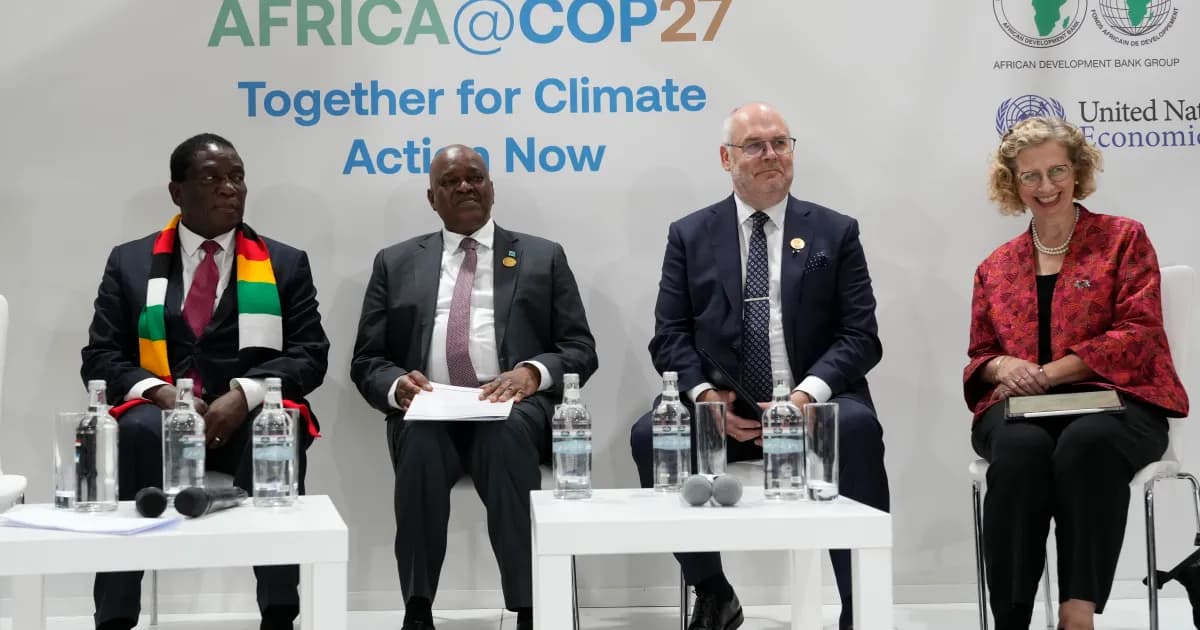We're loading the full news article for you. This includes the article content, images, author information, and related articles.
Two years after Nairobi’s inaugural summit, calls for transparency and follow-through have grown, emphasizing that bold pledges must translate into real, on-the-ground impacts across Africa.

Addis Ababa, Ethiopia — 2025-09-06 EAT.
The Second Africa Climate Summit (ACS2) begins in Addis Ababa with African governments turning calls for accountability and implementation to the forefront, two years after the landmark Nairobi Summit.
ACS2 opens amid growing impatience over unmet promises from 2023. Summit leadership and watchdogs insist real impact—not pledges—is the new benchmark for legitimacy.
The summit is designed to integrate Climate Week - Implementation Forum (1–6 September), with execution-focused labs driving the agenda toward COP30.
Kenya’s FLLoCA initiative is presented as a success story, with implementation in 45 counties and sub-project reach surpassing initial targets.
The inaugural 2023 Summit in Nairobi drew major financing pledges totaling more than US $20 billion, though critics say implementation has been slow.
ACS2 is intended to shift focus from pledges to delivery by offering action labs, emphasizing African-led solutions, and setting a roadmap toward COP30.
Constitution/Acts: No new statutes; summit builds on AU commitments and international climate governance frameworks.
Mandates: ACS2 aligns with Agenda 2063, AU climate priorities, and UNFCCC processes to establish continental implementation pathways.
What should happen next: Summit must yield an Addis Declaration with mechanisms to track finance flow, enforce accountability, and operationalize climate interventions.
Simon Stiell (UNFCCC Exec Sec): The Implementation Forum “connects negotiators with implementers… to scale up real-world solutions.”
Saliem Fakir (African Climate Foundation): ACS2 “tests whether Africa can transform from victim to solutions provider,” through finance, adaptation, green industrialization.
FLLoCA proponents: Kenya model seen as replicable example of devolved, transparent climate action.
Summary:
2023 Nairobi Summit pledges exceeded US $20 b. Not fully implemented.
CW2 Implementation Labs underway 1–6 September. see Implementation Forum detail)
FLLoCA: Active in 45 counties; 699 wards engaged; KfW contributed €31 m; counties contributed KSh 3 b. Implementation rated “Moderately Satisfactory.”
Verification: UNFCCC, World Bank, Dialogue Earth, and AU documents.
Governance: Failure to demonstrate progress risks Summit credibility and may undermine Africa’s negotiating leverage at COP30.
Trust: Without timely follow-through, global funders may hesitate to fulfill or extend commitments.
Momentum: Successful deployment of FLLoCA-style models could catalyze decentralized climate resilience efforts across Africa.
Will ACS2 adopt a Global Climate Finance Charter or similar accountability instrument?
Will summit declaration include enforcement mechanisms, timelines, and reporting obligations?
How will finance flows be tracked post-summit and who will oversee implementation reporting?
What follow-up institutional structures (e.g., regional climate observatory) will be put in place?
2023: Nairobi Summit launches with pledges worth over US $20 b.
1–6 Sept 2025: Climate Week II and Implementation Forum executed.
8–10 Sept 2025: ACS2 convenes in Addis.
Late 2025: COP30 scheduled in Belém, Brazil.
Content and binding nature of the Addis Ababa Declaration.
Adoption of transparent finance tracking mechanisms (e.g., continental dashboard).
African-led finance initiatives or pooled funding modalities announced.
Statements from developed partners on bridging North-South climate finance gaps.
Keep the conversation in one place—threads here stay linked to the story and in the forums.
Other hot threads
E-sports and Gaming Community in Kenya
Active 8 months ago
The Role of Technology in Modern Agriculture (AgriTech)
Active 8 months ago
Popular Recreational Activities Across Counties
Active 8 months ago
Investing in Youth Sports Development Programs
Active 8 months ago